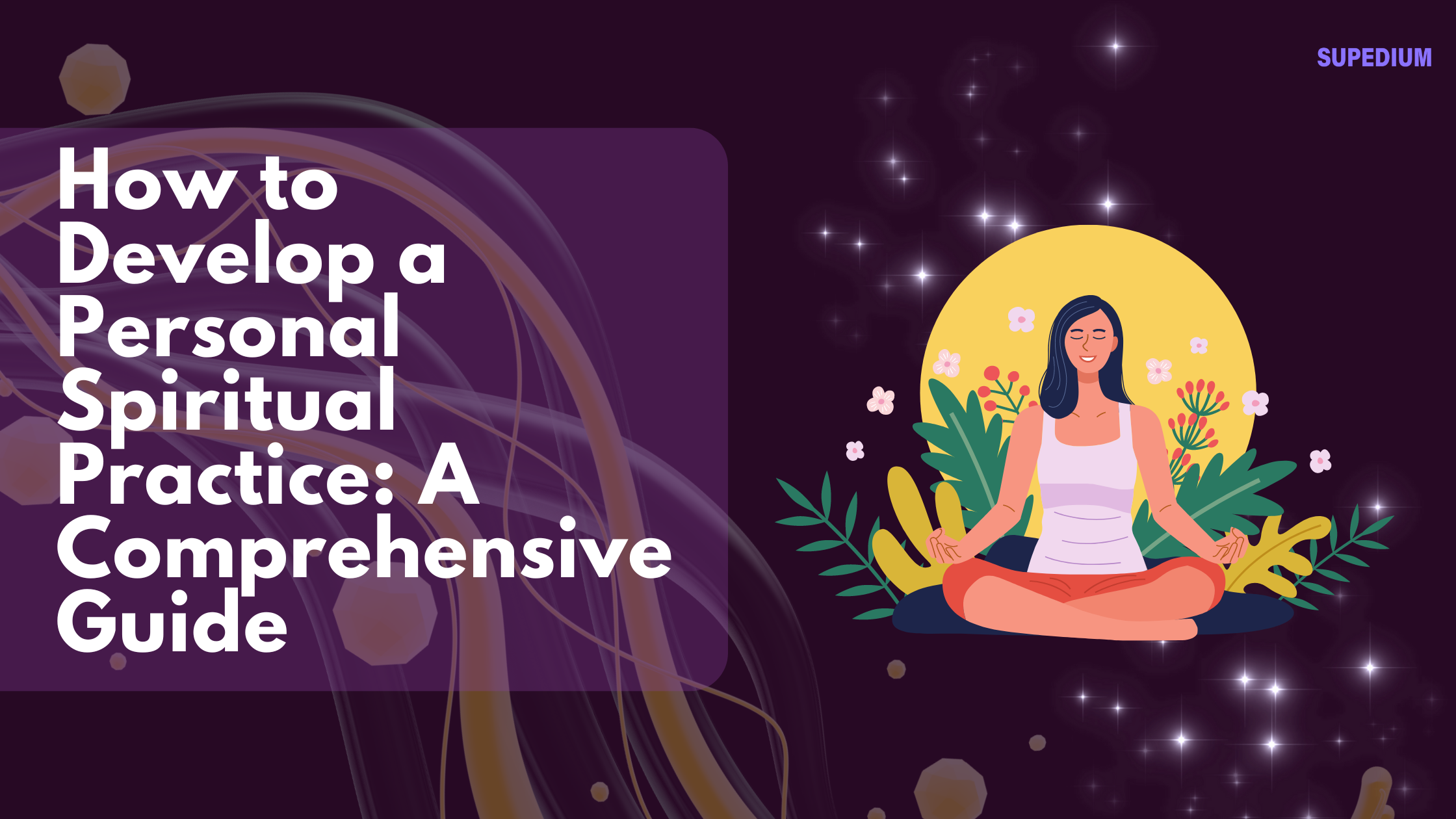Table of Contents
![]()
Introduction
A personal spiritual practice is a deeply individual journey, distinct from organized religion and grounded in personal exploration and growth. It encompasses the ways you connect with your inner self, the world around you, and potentially a higher power or universal force. Cultivating a personal spiritual practice can enhance emotional and mental well-being, provide a sense of purpose, and foster a profound connection to something greater than oneself.
Self-Reflection and Exploration
Assessing Your Current Spiritual Beliefs
Before embarking on developing a personal spiritual practice, it is essential to understand your existing beliefs and values. Reflect on your past spiritual experiences and how they have shaped your current perspective. This self-assessment helps in identifying what resonates with you and what areas might need exploration.
Clarifying Your Spiritual Goals
Define what you hope to achieve through your spiritual practice. This could range from seeking inner peace and personal growth to finding a deeper sense of purpose or connection. Understanding these goals will guide the selection of practices and help measure your progress.
Exploring Various Spiritual Practices
There are numerous spiritual practices to explore, each offering different benefits:
- Meditation and Mindfulness: Techniques that foster a deeper awareness of the present moment and promote inner calm.
- Prayer and Affirmations: Methods of communicating with a higher power or reinforcing positive beliefs.
- Rituals and Ceremonies: Structured activities that mark significant moments or express gratitude.
- Study of Spiritual Texts: Reading sacred or inspirational writings to gain insight and wisdom.
- Nature and Solitude: Spending time alone in nature to connect with the environment and reflect.
Creating Your Spiritual Practice
Choosing Your Practices
Select practices that resonate with you personally. This may involve combining different methods to create a balanced approach. For instance, you might integrate meditation with prayer or blend ritual practices with study.
Setting a Routine
Establish a regular schedule for your spiritual practices. Decide whether daily or weekly routines suit you best and choose times that align with your lifestyle. Creating a dedicated space for your practice can enhance your experience and commitment.
Personalizing Your Practice
Make your spiritual practice unique by incorporating personal rituals, symbols, or elements that hold special meaning for you. Tailor the practices to fit your lifestyle, and use your creativity and intuition to adapt them as needed.
Integrating Spiritual Practice into Daily Life
Building Consistency
Consistency is key to maintaining a spiritual practice. Set up a regular schedule and address any obstacles or distractions that may arise. By making your practice a priority, you ensure it becomes a natural part of your life.
Mindfulness and Presence
Apply the principles of your spiritual practice to everyday activities. Cultivating awareness and presence in your daily life helps you stay connected to your spiritual goals and enriches your overall experience.
Reflecting and Adjusting
Regularly assess your progress and reflect on your experiences. Adjust your practices as needed to better align with your evolving goals and insights. This ongoing reflection ensures that your practice remains relevant and effective.
Overcoming Challenges
Dealing with Doubts and Uncertainty
It’s common to encounter doubts or uncertainty in your spiritual journey. Address these feelings by seeking guidance from trusted sources, such as spiritual texts, mentors, or communities. Remember that doubts can be part of the growth process.
Balancing Spiritual Practice with Daily Responsibilities
Integrate your spiritual practice into your busy life by managing your time effectively. Prioritize your practice and find ways to incorporate spiritual principles into your daily responsibilities, ensuring that it complements rather than conflicts with your routine.
Maintaining Motivation and Commitment
Stay motivated by finding inspiration and encouragement through books, communities, or personal reflections. Celebrate milestones and progress to reinforce your commitment and keep the practice engaging.
Expanding and Deepening Your Practice
Learning and Growth
As you progress, explore advanced practices and teachings to deepen your understanding and experience. Consider attending workshops, retreats, or joining spiritual communities to expand your knowledge and connect with others on similar journeys.
Sharing Your Practice
Discussing your spiritual journey with others can provide new perspectives and insights. Teaching or mentoring others can also be a way to share what you’ve learned and enrich your practice.
Continual Reflection and Evolution
Embrace change as you grow and evolve in your spiritual practice. Regularly reflect on your journey and be open to new insights and practices that may enhance your spiritual development.
Resources and Tools
To support your spiritual journey, consider the following resources:
- Recommended Books and Texts: Explore literature that aligns with your interests and goals.
- Apps and Online Resources: Use technology to access guided meditations, spiritual exercises, and educational content.
- Communities and Groups: Join local or online groups to connect with like-minded individuals and share experiences.
Conclusion
Developing a personal spiritual practice is a unique and evolving journey that requires introspection, experimentation, and commitment. By following a structured approach while remaining open to personal adjustments, you can create a practice that enhances your spiritual well-being and enriches your life. Embrace the process with patience and persistence, and enjoy the profound growth and fulfillment that comes from nurturing your inner self.
Share This





Be the first to comment